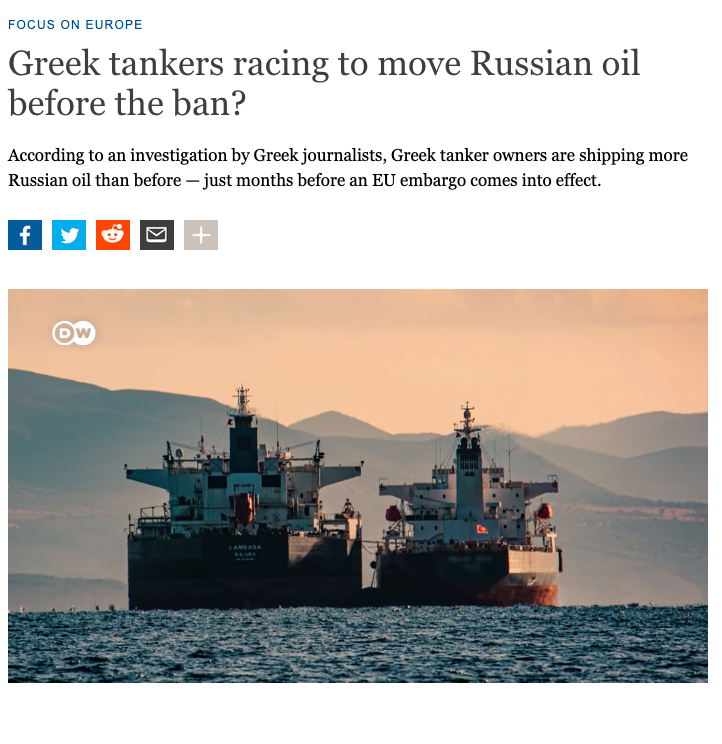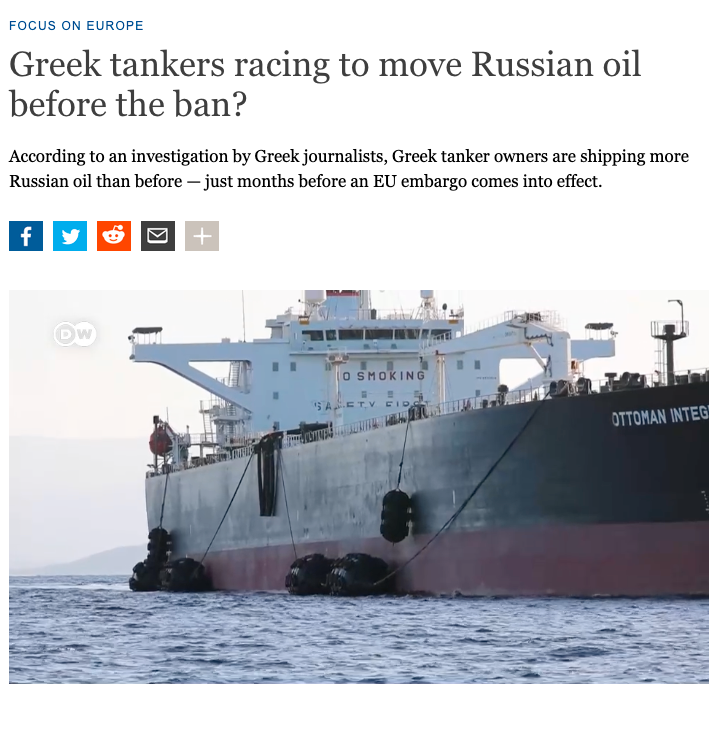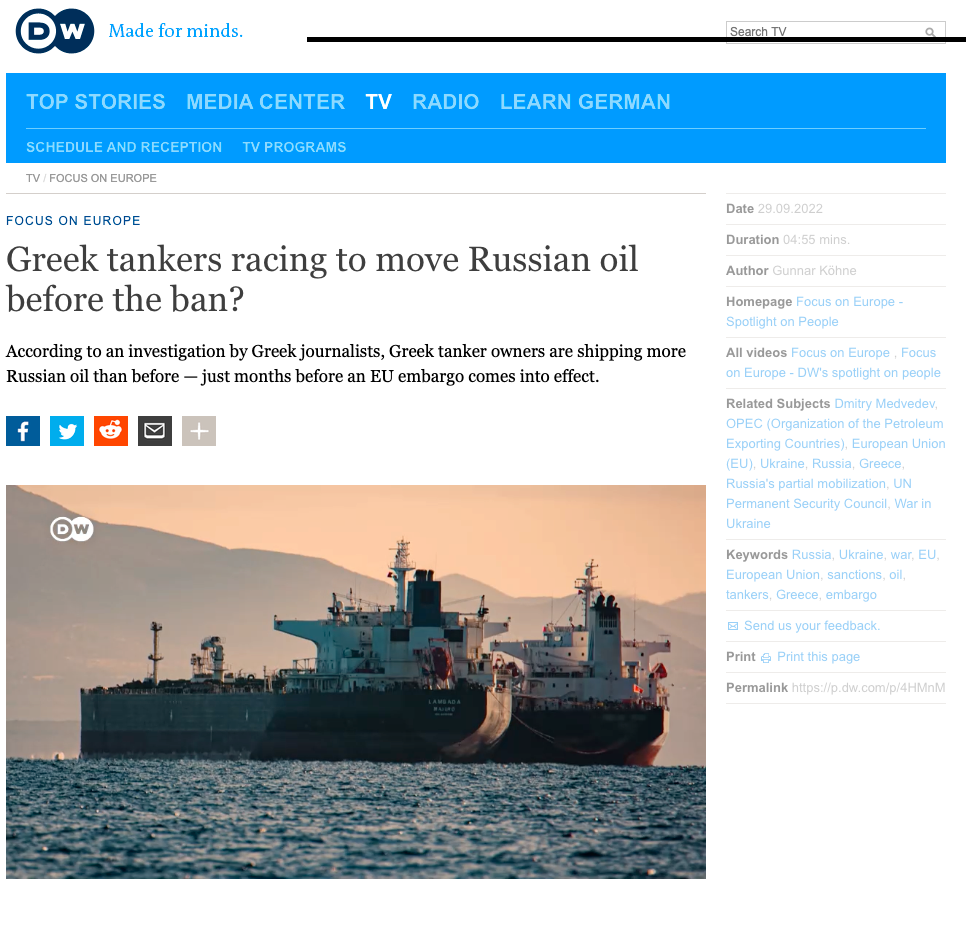Russia's invasion of Ukraine This is how Russian oil enters Europe by stealth
Of:
Nora Fernstedt
Published: Today 07.34
NEWS
Out in international waters, Russian oil is pumped over to Greek tankers.
In this way, the oil continues to flow into Europe - despite EU sanctions.
This is reported by Deutsche Welle , which accompanied a Greek journalist team out into the open water.
Since new sanctions came into effect in April, Russian-flagged ships are no longer allowed to dock in EU ports.
But Russian oil still reaches the EU – via hidden sea routes.
The
German newspaper Deutsche Welle has accompanied a team of journalists
investigating how Russian oil is pumped over to Europe outside of Greek
Laconia.
The Russian ships enter via the Black Sea. The oil is then transported to Greek tankers - and on to European countries.

"The problem lies in the hands of the EU"
The shipowners do not believe they are doing anything illegal, as Greece cannot violate the sanctions in open waters.
Even if it is not illegal, there is a moral dilemma, says Thodoris Chondrogiannos from the journalist network Reporters United.
-
The Greek ship owners also own many TV channels where they report that
Russia's war in Ukraine is bad. But at the same time they continue to
transport Russian fossil fuels all over the world, he tells DW.
And Greek politicians that DW spoke to believe that it is rather the EU that needs to do something about it.
-
The Russian oil does not go to Greece, it goes to all of Europe. So the
problem lies in the EU's hands, says member of parliament Stavros
Arachovitis to DW.


EU agrees on oil freeze
Even Nikkei Asia has also reported on Russian oil entering Europe by stealth.
According to their analysis, 41 ships have pumped over oil from Russian ships since the war began in February.
By
tracking the ships' AIS signals, it has been possible to see that the
Russian oil has since reached ports in Greece, Belgium, Great Britain
and other European countries.
The
EU has agreed to stop imports of Russian oil. The stop is taking place
gradually, and at the beginning of next year it is expected that the ban
will come into force completely. But already today, companies that buy
Russian oil face harsh criticism.
Experts also fear that secret offshore oil transactions will continue even after the oil freeze comes into effect.

Inga kommentarer:
Skicka en kommentar